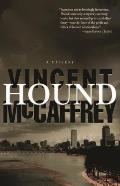
And then we have
the op-ed by Sergey Brin, a co-founder of Google, in the October 9th
New York Times, which praised and defended the concept of Google Books — essentially the planned digital access to all the world's literature. I recommend anyone interested in the subject of books, copyrights, and the integrity of text to read it.
I read his comments with horror and began immediately to write an essay on the subject for my own website. Sadly, I would wager that, at the very least, nine out of ten people who read Mr. Brin's editorial will think that his efforts are for the good and offer a whole new future for the written word.
A few weeks ago, I stood in a grassy field where I had been picking apples while a major book illustrator paged through his portfolio of dozens of successfully published covers and hundreds of projects. His portfolio was in his hand on a device made by Apple. He also had the text of the books he had illustrated there as well, and numerous reference works he had made use of.
How could I not be impressed by this wizardry held in the palm of a hand? Well, let's see... Perhaps I should highlight a few things Mr. Brin said in his article.
After mentioning Cornelius Walford's account of the destruction of great libraries through the centuries, he said, "I hope such destruction never happens again." Ironically, and I believe unintentionally, Mr. Brin's previous and current efforts are part of the actual destruction of millions of books right now. Today. This minute. Libraries from coast to coast are ridding themselves of their troublesome books and replacing them with machines and software. The good intentions aside, all of that machinery and software will be obsolete within ten years. I know that as an historical fact. I cannot now access things I wrote on my Mac ten years ago.
Additionally, one might ask, what is the software platform which will be mandated to access Google's efforts? But that would be picky and perhaps offensive to the software engineers at Microsoft.
And, given the rights to the world's literature, will Google be writing off the enormous cost of their effort and giving equal access to all other search engines? Not likely. Mr. Brin even says as much while suggesting that by leading the way, Google will be making it easier for others to follow. I suppose... if you have a spare billion to spend.
Mr. Brin refers to "a vanishing number of libraries and used book stores" as a 'black hole.'
Funny, I never noticed I was in a black hole all those years of my life spent at Avenue Victor Hugo Books, my small shop.
Mr. Brin does not even attempt to touch on the greater issues. Who will choose the works to be available? China, for instance, has already made it clear they will not permit access to what they do not like. Access is limited in all Arabic-speaking countries. Who will oversee the texts? How will you know what you see is what the author wrote? Where will you go to check the text?
And something more, as alluded to here in a previous posting: is reading a Kindle the same as reading a book? Does the mind approach the electronic page with the same sensibilities? I can answer that by way of a personal note. I have arthritis in two fingers (having been a two-finger typist from childhood). I can no longer use a mechanical typewriter, despite my fondness for the machines themselves. More importantly, though, I can say without doubt the way I write has been dramatically altered. I even think differently about the way I construct a sentence. Simply put, the ease of choice made in the instant as one writes has altered the way a writer crafts his work.
I don't wish to be totally negative at this moment of small triumph for myself. I have beside me my own first book! But these larger matters have already affected my life, and they will be with us for all the years of my children, and their children.
Every age encompasses the end of another and the seeds of the next. That is exactly what my novel Hound is about. It is most importantly about a final moment in human history, but it is also asking what is to come after. The old world, in all its aspects, has been my life. But Henry Sullivan, my protagonist, is younger than I am, and thus is straddling that cusp. This story, and those which follow, are about a book hound, a man who finds good books — as I see him in my mind, a sort of knight errant, and this series of mysteries as his sallying forth to do battle on behalf of the things he loves.
I am not Henry Sullivan. He is far smarter and braver than I have ever been. His worse limitation is that he only knows what I know. Thus, he has quite a task ahead. He must first come to understand the threat his world faces. Then he must find out why. And then he must do something about it.
Understanding the threat that Mr. Brin poses to the life of the book is obvious. What can be done about it is not. Certainly technology will move in the direction of demand. The usefulness of the Apple iPod is just as obvious, and the demand is terrific. Finding a viable place for the book in a world of instant amusement will be difficult. But that is my purpose.
Now I have a book of my own. And if I can entertain a few more readers for a little while longer, and thereby keep my world alive, I will be very pleased with what I've done. But I will not be satisfied with that.